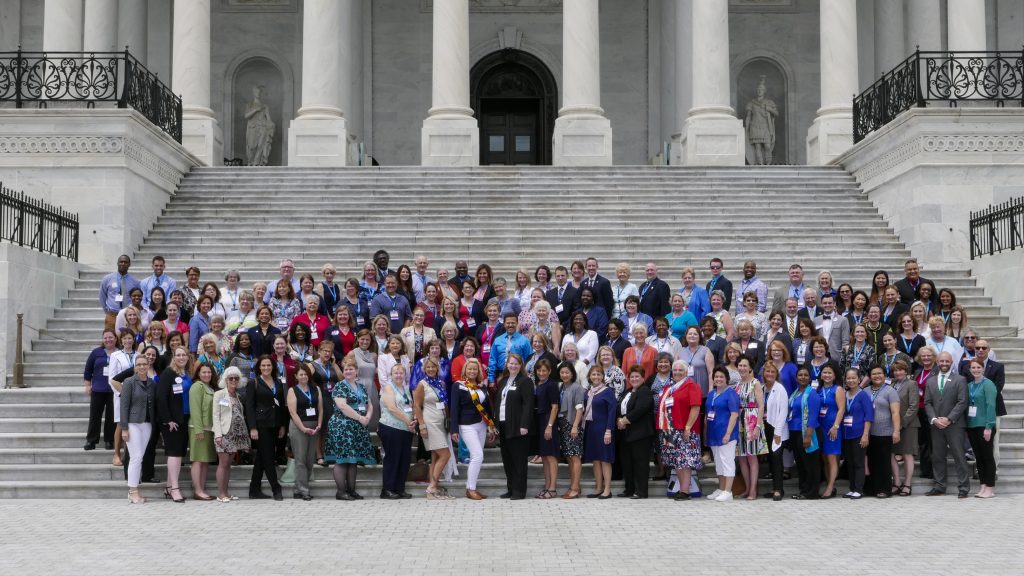
In just under three weeks ANA members and registered nurses from across the country will gather on Capitol Hill to demonstrate the power of nurse advocacy firsthand. As we prepare for our annual #ANAHillDay on June 20th, we wanted to offer some helpful tips and reminders for those attending and encourage those who might still be on the fence to register before it’s too late. With momentum building around a number of bills in Congress that will help advance the nursing profession, now is the perfect time to join us for our biggest advocacy event of the year.
Prior to arriving in Washington for the big day, please take some time to get to know the lawmakers with whom you’ll be meeting (your federal representative and both Senators). In particular, determine whether they’re already supportive of the legislation we’ll be discussing in our in-person meetings. That includes:
- Workplace violence legislation in the House and Senate;
- Title VIII nursing workforce development reauthorization in the House and Senate, and;
- Home health legislation for APRNs in the House and Senate.
For additional background on these bills, please visit our RNAction issues page. If you’re unsure who represents you in the House, please find out here. Rest assured, we’ll be going into greater detail on all these bills at our morning breakfast briefing before you head up to Capitol Hill for your meetings. We’ll also be hearing from ANA leadership as well as the newest nurse in Congress, Rep. Lauren Underwood (D-IL-14).
Once you’re on the Hill, you and members of your state delegation with whom you’ll be paired will have the unique opportunity to share your professional perspective on why each of these bills matters to you. While it’s important to know what these bills are working to accomplish and how they would do so, it’s just as important for your representatives and their staff to hear your firsthand account on how you’ve encountered these issues in your job. Representatives and staff will always respond better when you are able to make a personal attachment to the issue at hand. Please spend some time thinking about if and how these issues have impacted your work, and decide which ones you feel most confident speaking to during your meetings.
And if you can’t join us here in our nation’s capital, rest assured you’ll still have plenty of opportunities to join through our virtual Hill Day campaign. To ensure you’re getting these and other timely nurse advocate updates, please sign up for our RNAction updates.
To watch our Facebook briefing with additional information on everything Hill Day-related, please click here. And if you’re interested in attending but still haven’t registered, please do so here.
